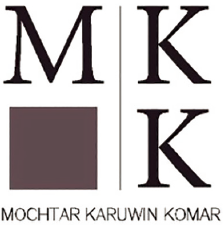
By Oka Anantajaya, Mochtar Karuwin Komar
The central bank has revoked its 2009 regulation and introduced an updated set of rules.
The use of e-money has increased along with a growing number of e-money providers in Indonesia. This has led to significant development in the industry itself within the past couple of years, followed by the rise of the financial technology industry. The Indonesian central bank, Bank Indonesia (BI), recently issued Bank Indonesia Regulation No. 20/6/PBI/2018, concerning Electronic Money (2018 E-Money Regulation) and the 2018 E-Money Regulation repeals and revokes the previous e-money regulation, which was enacted in 2009, along with its amendments.
Under the 2018 E-Money Regulation, there are several key changes and the introduction of new rules that should be taken into consideration. The major changes and new rules will be further described in this article.
Open loop and closed loop
Under the 2018 E-Money Regulation, e-money is classified as a) closed loop and b) open loop. Closed loop is considered as an e-money that may only be used as payment instrument to goods and/or service provider that also acts as the issuer of such e-money. On the other hand, open loop is considered as e-money that may be used as payment instruments for goods and/or service providers that are not issuers of such e-money.
Requirement to have an e-money licence
A party that wishes to conduct e-money activities is required to obtain a licence from BI. The requirement to have a BI licence, however, can be exempted for a party acting as a closed loop e-money issuer with a floating fund of less than Rp1 billion. The licence is valid for five years.

Storage, user identity recording and maximum limit
The 2018 E-Money Regulation classifies the storage media over the value of such e-money, which can be in the form of server-based storage and chip-based storage.
In relation to the recording of user identity, the 2018 E-Money Regulation classifies user identity into two types, namely unregistered and registered. As for the unregistered type, the user identity is not registered and recorded with the Issuer. In contrast, for the registered type, the user identity is registered and recorded with the Issuer.
The 2018 E-Money Regulation also sets out the maximum limit of the value of the e-money deposited. For unregistered e-money, the maximum deposit limit shall be Rp2 million and for registered e-money the maximum deposit limit shall be Rp10 million. The transaction value limit of an e-money within one month shall not exceed Rp20 million.
Front-end and back-end
The 2018 E-Money Regulation classifies the types of payment system services providers into two groups, namely front-end and back-end. Front-end comprises issuers, acquirers, payment gateway providers, e-wallet providers and fund transfer providers. On the other hand, back-end comprises parties that do not have any direct interaction with consumers such as principal, switching companies, clearing operators and final settlement operators.
Capital (equity) requirements
Under the 2018 E-Money Regulation, non-banking institutions carrying out e-money activities as an issuer shall have paid-up capital of at least Rp3 billion.

However, it is noteworthy that the minimum paid-up capital requirements must be increased should the proportion of the floating fund held by the issuer increase. An increase in the minimum paid-up capital requirements shall occur under the following circumstances:
- If the average floating fund is more than Rp3 billion and reaches up to Rp5 billion, then the issuer will be required to increase its paid-up capital up to at least Rp6 billion;
- If the average floating fund is more than Rp5 billion and reaches up to Rp9 billion, then the issuer will be required to increase its paid-up capital to at least Rp10 billion; and
- If the average floating fund is more than Rp9 billion, then the issuer will be required to increase its paid-up capital to at least Rp10 billion with an additional 3 percent of the value of the floating fund.
The average floating fund shall be calculated based on the data of the average floating fund from the previous year (calculated as of January to December). For an issuer that first enters into operation after the month of January, the average floating fund shall be calculated as of the first month that the issuer enters into operation until the month of December of the previous year. The increase of paid-up capital due to an increase of floating funds and following calculation of the average floating fund mentioned earlier shall be carried out by no later than the end of June of the current year.
Foreign shareholding restrictions
Under the 2018 E-Money Regulation, an issuer can only have foreign share ownership up to a maximum of 49 percent. This limitation applies to both direct and indirect ownership based upon BI’s assessment. In addition, BI is authorised to set out the amount of foreign share ownership in non-bank institutions that carry out e-money actives based on certain considerations. Certain considerations include, among others, the track record of the company itself and/or its shareholder, the technology utilised and the scope of the use of e-money.

Controlling shareholders restrictions
A party is prohibited from acting as (i) a controlling shareholder (having shares with voting rights of more than 25 percent or shares with voting rights less than 25 percent but with the authority to exercise control directly or indirectly) in more than one non-bank institutions having a licence to operate the same group of payment systems services provider (eg a party cannot be a controlling shareholder of two types of entities each having an issuer licence); and (ii) a controlling shareholder in more than one non-bank institution that is in different payment system service group (eg, a party cannot be a controlling shareholder in one entity having a licence as an issuer (front end) and the other entity has a licence as a principal (back end)).
Non-bank institutions that engage in e-money activities are prohibited from carrying out corporate actions that will result in a change of its controlling shareholder for five years from the time the licence is initially granted by BI unless in certain conditions and with the approval of BI.
E-money features and currency
E-money features that may be provided by issuers under the 2018 E-money Regulation can be in the form of a) top-up; b) shopping payment transactions; and/or c) payment of bills. Apart from the earlier mentioned features, the issuer may also provide other types of features, such as a) fund transfer and cash withdrawal, for registered open loop e-money; and/or b) other features as may be agreed by BI.
Fund transfer features may only be provided by the issuer following an approval as a fund transfer provider being granted by BI under the laws regarding fund transfer. Apart from the features, e-money issued in the territory of Indonesia must use the Indonesian Rupiah currency. In addition, providers are prohibited from accepting, using, relating, and/or conducting payment transaction processing of e-money using virtual currency.
Representation and warranties in applying for a licence
The 2018 E-Money Regulation introduces a new requirement for banks or non-bank institutions to provide a written representation and warranties in applying for a licence to carry out e-money activities with BI. The representation and warranties shall include, among others, the following:
- It has been duly established under the laws of Indonesia;
- It is not in a default condition, and is not subject to sanctions by the relevant authorities, and/or is not involved in any criminal or civil proceeding that may materially affect its business continuity;
- It is not subject to a petition of bankruptcy or suspension of payment of debt obligations before the competent commercial court; and
- It warrants that it will adhere to the laws and regulation, both for activities conducted by itself and together with other affiliated parties;
The above representation and warranties shall be signed by the board of directors representing the bank or non-bank institutions accompanied by a statement from an independent and professional legal counsel based on legal due diligence.
 Fit and proper test requirements and director’s residential requirements
Fit and proper test requirements and director’s residential requirements
In applying for a licence to carry out e-money activities, the 2018 E-Money Regulations gives the authority to BI to conduct a fit and proper test on: a) controlling shareholder; b) members of the board of directors; and c) members of the board of commissioners for non-bank institutions that are in the process of obtaining a licence to carry out e-money activities.
The purpose of having the fit and proper test is to ensure the fulfilment of integrity, financial reputation and financial competence of each of the controlling shareholder, members of the Board of Commissioners and members of the Board of Directors.
In addition to the fit and proper test requirements, the majority members of the Board of Directors of non-bank institutions that conduct e-money activities must be domiciled in Indonesia.
Sanctions
A sanction is imposed for violation of the 2018 E-Money Regulation which can range from: a) verbal warning; b) fines; c) temporary freezing of a part or all e-money activities and/or other payment system services activities; and/or d) revocation of the licence in carrying out e-money activities and/or other payment system services.





















